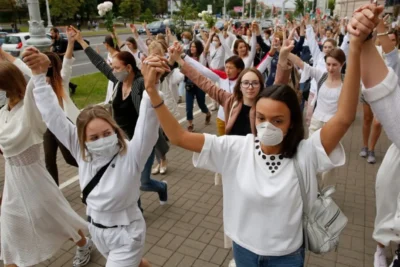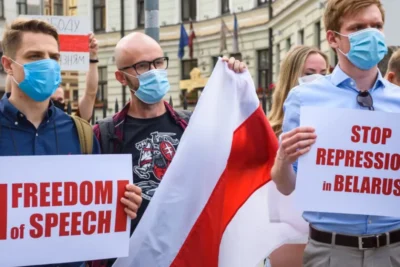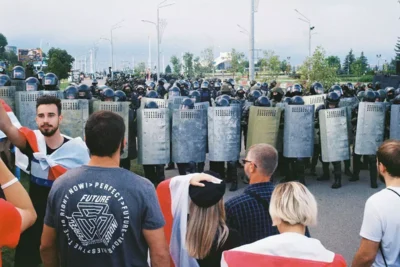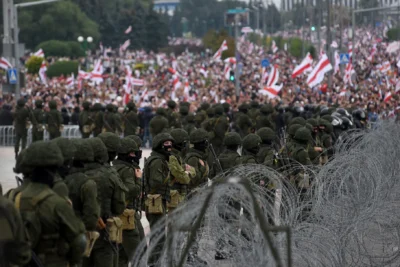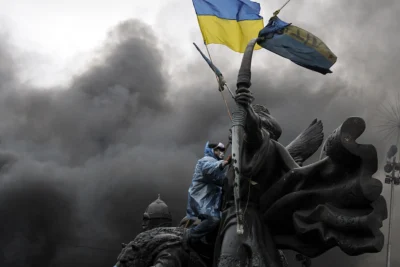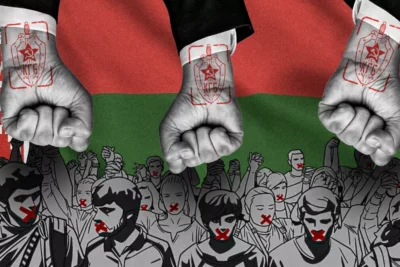
🕯️The State of Political Prisoners in 2025: How Belarus Silences Dissent

In 2025, political prisoners in Belarus continue to represent a chilling symbol of state repression under Alexander Lukashenko’s authoritarian regime. From human rights defenders to students, artists, journalists, and ordinary citizens, thousands have been detained simply for expressing dissent. While the global spotlight has shifted to other conflicts, Belarus quietly intensifies its crackdown — behind closed doors and beyond headlines.
This article offers a comprehensive overview of the current state of political imprisonment in Belarus, its legal mechanisms, major figures behind bars, and how the international community is responding.
⚖️ What Defines a Political Prisoner in Belarus?
A political prisoner in Belarus is typically someone detained or imprisoned for political motives — often without fair trial, access to legal defence, or even public acknowledgment. Human rights groups such as Viasna, Human Rights Watch, and Amnesty International have reported widespread misuse of laws to criminalize peaceful protest, social media posts, and even the display of historical Belarusian flags.
Key patterns of repression include:
- Detaining individuals under vague criminal codes like "extremism"
- Prosecution for participating in unauthorized gatherings
- Arrests linked to online criticism or independent journalism
- Torture and psychological pressure in detention facilities
🧱 Statistics: A Growing Number of Political Prisoners
As of July 2025, the Belarusian Human Rights Centre Viasna has confirmed over 1,600 political prisoners, though the real number may be higher due to limited transparency.
📊 Estimated breakdown:
- 250 journalists and media workers
- 370 students and academics
- 95 cultural workers and artists
- 600+ peaceful protesters and civil society activists
- Dozens of former presidential campaign staff (e.g., Tsikhanouskaya’s team)
These figures place Belarus among the top repressive regimes in Europe by number of political prisoners per capita.
🧠 Profiles of Notable Political Prisoners
1. Maria Kalesnikava – Musician and political activist
Sentenced to 11 years for organizing protests and “plotting to seize power.” Known for tearing up her passport to avoid forced deportation.
2. Ales Bialiatski – Nobel Peace Prize laureate and founder of Viasna
Currently serving a 10-year sentence under bogus charges of tax evasion and “financing group activities.”
3. Ihar Losik – Blogger and journalist
Arrested for his Telegram channel; reportedly attempted suicide in prison following extended solitary confinement.
These cases reveal a pattern: the government targets anyone with visibility or potential to inspire resistance.
🕵️♂️ Legal Tools of Repression
The Belarusian government uses the legal system as a tool of intimidation. Laws around extremism, treason, and disrupting public order have been broadly expanded in recent years.
📌 New laws in 2023–2024:
- Retroactive charges: People can be arrested for posts made before laws were passed
- Criminalisation of donations: Supporting NGOs or political prisoners is punishable
- Military service-related arrests: Young Belarusians refusing conscription face prison
These laws create a climate of fear, ensuring that even silent opposition carries risk.
🔒 Inside the Prison System
Prison conditions for political prisoners in Belarus are harsh and often inhumane:
- Solitary confinement for extended periods
- Limited access to medical care
- Suppression of religious practice
- Censorship of letters and books
- Forced propaganda “confessions” on state TV
Former inmates have reported beatings, psychological torture, and even forced labour.
“Belarusian prisons have become a modern gulag for dissenters.” — former detainee via Viasna
🌍 International Response: Strong Words, Weak Action?
While the EU, USA, and human rights bodies have condemned the arrests, meaningful consequences remain limited. Sanctions have been issued, but critics argue they’ve had little deterrent effect.
Current external pressure includes:
- EU targeted sanctions on judges, prosecutors, and officials
- UN resolutions on human rights violations
- Support funds for exiled Belarusians and families of detainees
However, Russia’s backing of Lukashenko shields him from isolation, allowing the repressions to continue largely unchecked.
🌱 Resistance and Hope
Despite the risks, resistance continues inside and outside Belarus:
- Secret networks organize letters and legal support
- Families of prisoners speak publicly and campaign abroad
- Artistic communities spread awareness through underground art and literature
- The diaspora in Poland, Lithuania, and Germany keeps the issue alive in Europe
In 2025, silence remains the regime’s tool, but voices continue to rise — even from prison.

